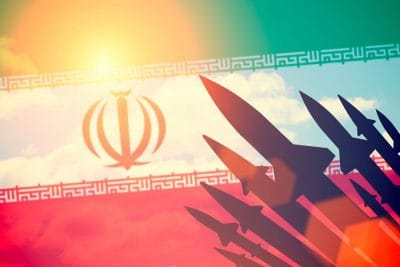Among the possibilities for cooperation in the region: an Israeli-Kurdish cooperation perhaps best reflects a possible alliance between two outcast but resilient peoples in the Middle East, who share common interests, have a history of cooperation and no history of religious or cultural conflict.
Under the circumstances created in our region over the last six years, it has become feasible to establish political entities or new autonomies whose populations have no religious or historic conflict with the State of Israel in particular, and with the West in general. These entities could include minority groups, some of which took shelter under the collapsing Syrian Republic, such as the Kurds, the Druze, the Christians (and, under particular circumstances, even the Alawites). Cooperation and support of these groups could have favorable implications for Israel, as well as for the West in general and for the United States in particular; therefore, Israel should continue analyzing the feasibility of creating such alliances in the future. Even if it appears that Assad, with massive Russian-Iranian assistance, has regained his control over extensive regions in Syria, this situation is artificial and fragile and depends entirely on forces that are external to the Syrian territorial space.
Cooperation between Israel and minorities in the Syrian-Iraqi arena should be based on the principle espoused by David Ben-Gurion: “a coalition of minorities in the Middle East.” When analyzing such forms of cooperation, Israel needs to fully grasp the potential of long-term cooperation with these minorities, their capacity to contribute to the maintaining of security along the Israeli-Syrian border, and their ability to serve as a counterweight against radical jihadist factions in the region that are hostile towards Israel.
Cooperation employing a model of a “coalition of minorities” entails quite a few risks. Overt intervention by Israel on behalf of the minorities involved in the civil war in Syria is liable to place their lives in danger and incite additional enemies against them. Minority groups’ cooperation with Israel is liable to diminish their legitimacy among countries in the Middle East. Furthermore, considering that most groups in Syria are not organized in a political framework, and the fact that these minority groups switch loyalties depending upon the conditions in the field, it will not be a simple or easy task to form a network of strategic alliances between Israel and these groups.
Among the possibilities for cooperation in the region: an Israeli-Kurdish cooperation perhaps best reflects a possible alliance between two outcast but resilient peoples in the Middle East, who share common interests, have a history of cooperation and no history of religious or cultural conflict.
An alliance between Israel and minority groups in the Middle East is not an unprecedented idea. Over the first fifty years of its existence, Israel formed various alliances and forms of strategic cooperation: with Iran, as a Muslim non-Arab minority, until the overthrow of the Shah’s regime during the 1979 Iranian Revolution; with the Kurds, mainly during the 1960s and 1970s; with the Maronite Christians in Lebanon during the 1970s and 1980s; and with the Turks, until Erdoğan rose to power.
Israel’s support of a minority population, group or entity-in-the-making does not necessarily have to be overt. Such cooperation can take place covertly, with Israel providing assistance in the form of know-how, technology, intelligence and support in diplomatic channels – which could result in those emerging entities recognizing the Jewish people’s right of self-determination and the exercise of this right through a sovereign Jewish State in the Middle East, while ensuring Israel’s security, and perhaps even advancing additional common interests, such as recognizing Israel’s sovereignty over the Golan (de jure or de facto).
These courses of action were not plausible in the regional reality prior to the outbreak of the civil war in Syria. Israel should take action to implement these courses of action, recognizing that such alliances offer an historic opportunity to shape a new reality as it pertains to Israel’s standing in the region and to international recognition of Israel at its defensible borders.



